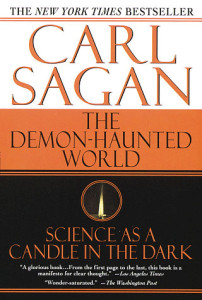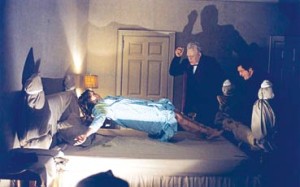Exploring Our Connections

Many people believe that we human beings use only a portion of our brains. City College of New York Physics Professor Michio Kaku explains this differently. The brain uses so much of our total caloric energy that we can access and utilize only about 10% of our total brainpower or consciousness at any one time.
Our brains might literally overheat otherwise. In popular neuroscience books and magazines, one theme prevails: our brains continually sort and store everything we learn, pruning unneeded neuronal connections in infancy and childhood, and growing new neuronal connections into middle age. Our brains work 24/7 and the healthier our environment, the better our brains function.
I could write a book about my own lost and recovered memory and what I believe has facilitated healing. My self-reporting would follow a timeline marked by continued effort to learn new things, changes in diet, exercise and my own desire and effort to change my own thinking. There is increasing evidence that we can walk and talk ourselves out of depressed thinking patterns and into greater well-being. It is not easy. Further, fixing what is “wrong” with individuals often eludes seekers and researchers because what is often wrong with individuals generally originates within systems developed with input from some other well-intentioned researcher or some well-regarded seeker. We all get here from somewhere back there. Our common ground abounds with culturally derived verbiage and terms of art applied out of context.
Our minds function as programmed searchlights.
 Some years ago, on a flight to the west coast, I experienced a sudden flood of confusing memory seemingly related to a long ago medical condition. As the memories intruded, I felt I was suddenly and physically outside of myself. Recently, NFL player Thomas Jones stated on Brainline.org, that he felt himself outside of his own body after he suffered a concussive blow to the head during a game in which he continued to play. While I felt overwhelmed in the moment by disconnected memories from the past, my regular cognitive processes seemed to have shut down. I struggled to function normally. I felt unsure that the “I” sitting in my airplane seat was the “I” who boarded the flight. I checked my ticket and driver’s license to remind myself that my name was what I remembered it to be. I stared at wallet photos of family members, forcing myself to retrieve and remember the names associated with those images, names I knew and should remember. I struggled to read my Harper’s Magazine even though the print dissolved into moving squiggly lines. When I looked into the restroom mirror and saw a woman who did not look quite like me, I checked my driver’s license again.
Some years ago, on a flight to the west coast, I experienced a sudden flood of confusing memory seemingly related to a long ago medical condition. As the memories intruded, I felt I was suddenly and physically outside of myself. Recently, NFL player Thomas Jones stated on Brainline.org, that he felt himself outside of his own body after he suffered a concussive blow to the head during a game in which he continued to play. While I felt overwhelmed in the moment by disconnected memories from the past, my regular cognitive processes seemed to have shut down. I struggled to function normally. I felt unsure that the “I” sitting in my airplane seat was the “I” who boarded the flight. I checked my ticket and driver’s license to remind myself that my name was what I remembered it to be. I stared at wallet photos of family members, forcing myself to retrieve and remember the names associated with those images, names I knew and should remember. I struggled to read my Harper’s Magazine even though the print dissolved into moving squiggly lines. When I looked into the restroom mirror and saw a woman who did not look quite like me, I checked my driver’s license again.
I concentrated as hard as I could, using whatever information I remembered to keep myself grounded in my new fluctuating reality. Of all possible explanations for why this mental/emotional event continued, the mental archives of my educational, religious, and cultural learning tossed me one theory: I was being “possessed” by a personality other than my own. I thought about Linda Blair as “Regan” in “The Exorcist.” From where I sit today, I believe my brain drew on what I knew, and while I had seen “The Exorcist,” I knew nothing about TIA, TBI, TGA or stroke. If I had been Jill Bolte Taylor, author of “My Stoke of Insight,” I would have perceived things differently. We only know what we know.
While fMRI technology can display physical brain trauma, an fMRI cannot detect the cultural mythologies, stereotypes, inaccurate translations and inapt metaphors handed down over time to guide our thinking and perception. 
In “The Demon-Haunted World,” Carl Sagan wrote that it was not until recently that individuals reporting otherworldly intrusions described flying saucers, because it was not until fairly recently that someone coined the term “flying saucer.” I studied psychology and it was reading Rollo May and Carl Jung that I first encountered the word daemon. “Daemon” in psychology is a term to describe the driving or archetypal forces underlying all human behavior. The Oxford dictionary suggests the word daemon is both “(in ancient Greek belief) a divinity or supernatural being of a nature between gods and humans” and “an archaic spelling of demon.” Carl Sagan wrote that “demon” means “knowledge” in Greek, just as “science” means “knowledge” in Latin.
Language, and how we use it, defines, connects and divides us from ourselves individually and collectively. Throughout the ages, much knowledge of ourselves stayed hidden from us because we ourselves did not have the means to get to it. Accurate information improves health.
Knowledge empowers.









